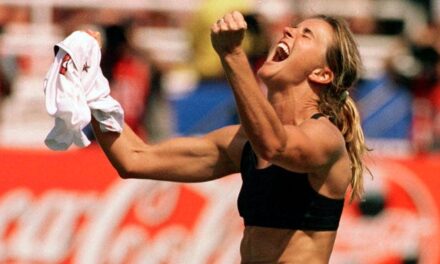Unstoppable Novak Djokovic cruises past Jannik Sinner in straight sets to make his FIFTH successive Wimbledon final – with the defending champion set to play world No 1 Carlos Alcaraz in Sunday’s showpiece
According to John McEnroe, patron saint of umpire-baiting, Richard Haigh was keen ‘to get his name in the paper’ while taking charge of Friday’s Wimbledon semi-final.
It is the lot of any official with the temerity to enforce the rules in tennis that ex-players will traduce them, as Yorkshireman Haigh was the latest to find out.
His entirely correct intervention to call Djokovic for a hindrance, and then follow it straight up with an equally correct time violation, might have turned this match against Italy’s Jannik Sinner. How dare he do his job, on an occasion of this magnitude?
An incident that could have blown the great Serb off course was to pass through like one of the squally showers that plagued southwest London the whole day.
It turned into a boiler plate Djokovic victory, of the type we have so often seen before: talented younger player challenges him, creates their chances, is not tough enough to win the big points and loses the tiebreak when it comes. There was even some irritation from the Serb with unsupportive elements of the crowd towards the end, the odd goading gesture, but those passed quickly, too.
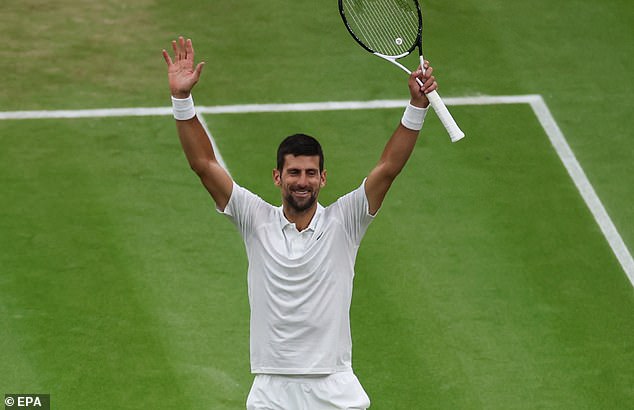
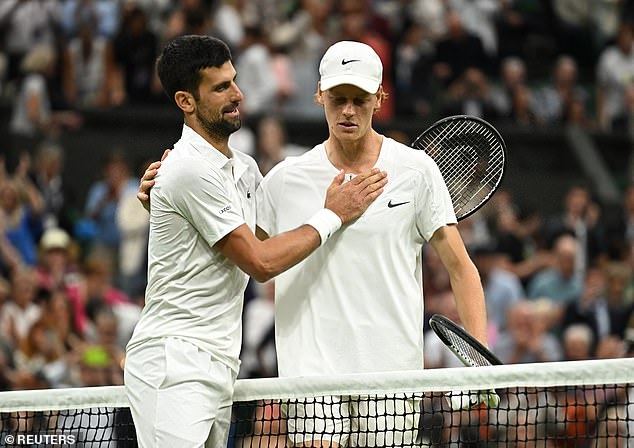
The end result in this case was a 6-3 6-4 7-6 defeat for the 21 year-old Italian, who showed that he was capable of competing for much of the time, but was edged out when it most mattered. It would not be a huge surprise if a similar story unfolds in what will be a ninth Wimbledon final for Djokovic and a first for Carlos Alcaraz.
The Serbian displayed his greatness in the wake of the controversial fourth game of the second set, when Haigh awarded the point against him for the clear hindrance of letting out a loud, delayed grunt when his opponent was about to hit the ball.
He followed that up with handing out a time violation as Djokovic tried to maintain his composure by taking some extra time between points, and allowed the shot clock to expire.
The latter offence is much more common than the former, and as the defending champion pointed out, it is not something that he has been called on before.
It is true that he is not a serial offender, but the problem is that there are others in both the men’s and women’s game much more prone to this habit and they very rarely get pulled up for it, Aryna Sabalenka for one. Serena Williams was penalised for it in a couple of her Grand Slam finals, but it is very much the exception.
Sinner gave a vague answer when asked about the hindrance later, saying ‘Obviously he hit the ball already, and then after he was shouting quite long and with the volume up.’ He pointed out, however, that a similar instance had occured in the fourth round match between Andrey Rublev and Alexander Bublik, which went unpunished.
While there is a lack of consistency, the underlying cause is that the game’s authorities have done absolutely nothing to combat repeated grunting and yelping among the players, a habit which many spectators and tennis’s ageing TV audience are turned off by.
If anything the young Italian appeared more perturbed by the commotion that ensued after Haigh’s intervention, illustrating the gulf in competitive guile between Djokovic and his less mature challengers.
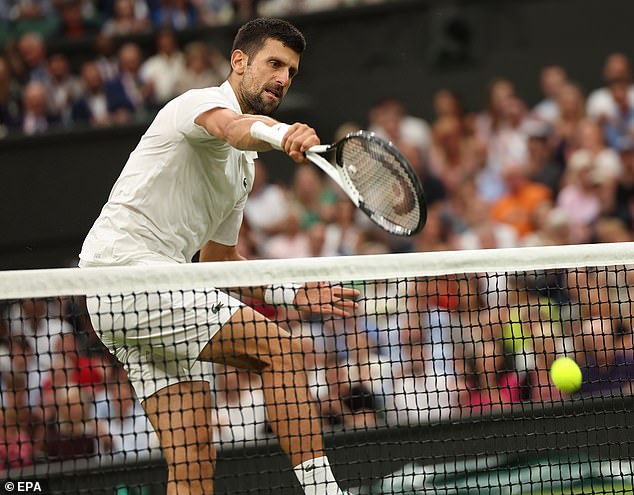
The champion bit his lip and pulled off some amazing retrieving in the games that followed, as he is prone to do.
He did get tetchy towards the close of the match, making a sarcastic crying gesture to the crowd and cupping his ears as Sinner forced two set points in the third. Yet he pulled through, and his opponent stumbled into a morass of unforced errors when opportunities presented themselves.
That was as ever, the key to the match, and there was no arguing with Sinner’s overall assessment: ‘My level was good. I just, especially in the pressure points, I messed it up a little bit. His mental side is very strong, for sure. The important moments, he knows exactly how to play them. He’s not going to give you anything, he was playing very good, not missing. Yeah, that’s him.’
It is the kind of expertise that comes when you have reached 35 Grand Slam finals, which Djokovic has. Among the most dizzying statistics in his career that this number comes from just 71 Majors that he has entered since the start of his career.
Sinner, glorious ball striker though he is, cannot compete with that yet. He has also not played remotely the same amount of matches on grass, and gave the game away with his complaints that the grass was slightly treacherous.
Djokovic has seen it all before, experienced every type of grass court condition. These two are both excellent skiers – Sinner was once good enough to be on Italian national junior squads – but the Serb shows the better balance in their chosen profession.
Sinner had break point chances in two of his first three return games, attacking Djokovic’s sluggish second serve, but too often in the first two sets he miscued on forehands.
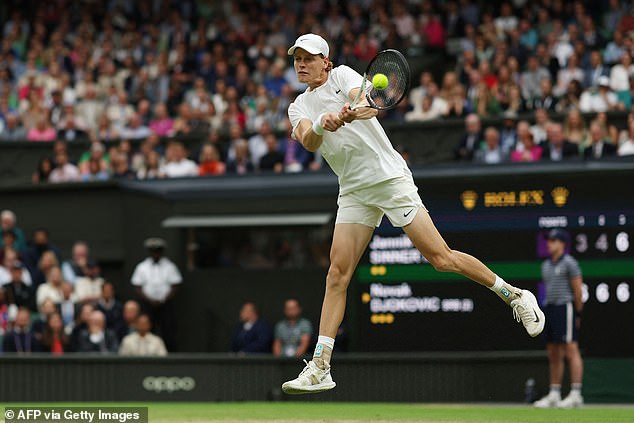
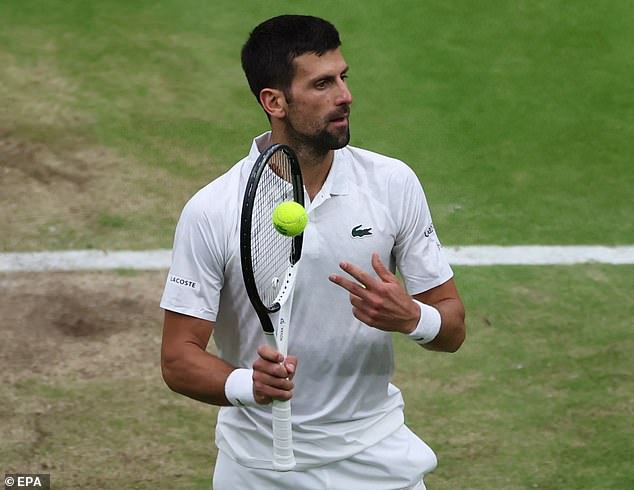
Part of the problem, however, is that Djokovic’s defence is so outstanding that he forces opposition to overpress and that brings errors with it.
The Italian upped the velocity on his groundstrokes in the third set and it almost got him back into the match, unsettling Djokovic enough to get temporarily upset with the crowd.
When the tiebreak game there was an inevitability to it. Nobody has taken one off him at a Grand Slam since the Australian Open second round and he has now won fifteen of them consecutively at the Majors, an all-time record.
Now for Alcaraz, who can count on being the crowd favourite after all the goodwill he has amassed in recent weeks. He is a more rounded competitor than Sinner and unlikely to be swatted away as easily, but now needs to produce something extraordinary.


